2 Chron. 36:14-16, 19-23; Ps: 137:1-6; Eph. 2:4-10; Jn. 3:14-21
“Rejoice, O Jerusalem” “For God so loved the world that he gave his only Son, so that everyone who believes in him might not perish but might have eternal life.” John 3:16 is printed in posters, cups, shirts, billboards and proclaimed by all Christian people. It stands as a foundation of faith in Jesus Christ and unity for his people and we rejoice in Laetare Sunday to be children of God. In the darkness of sin comes the light of faith bring hope into the world.
Faith and works unite as one when we act in faith and allow the works of God to be his love through us. We live in it we rejoice in it and we fulfill the works of God in it. It is in the ministry of the priesthood that accomplishes the works of God in the church. It is the works of God seen in the service of the laity coming from our baptism and the gift of the Holy Spirit. Faith and works are not to be divided any more than our soul is to be separated from our body for we are given both to serve as one in this world.
John 3:16 is one of the most quoted verses of the bible by Christians of all denominations. Human nature being what it is has in the same way created disunity among Christian people when it comes to salvation between those who profess “saved by faith alone and not by works” and Catholic faith in salvation by grace in unity with works. James 2:26 reminds us “For just as a body without a spirit is dead, so also faith without works is dead”.
Today Ephesians makes a strong argument for faith, “For by grace you have been saved though faith, and this is not from you; it is a gift of God; it is not from works so no one may boast”. Saved by grace and rich in mercy is our God who desires us to recognize how great is his love that he gave us his only Son to save us. It is clear salvation is a gift of grace from God who is “rich in mercy.” We may ask how one confession wipes away all my sins if not by the rich mercy of God. How can any of our works be considered justification for salvation since we believe in John 3:16, Jesus died in atonement for our sins that we “might not perish”? The simple answer is we don’t. An act of faith opens the gates of salvation to receive the grace of mercy from God. So where does “works” stand in salvation?
“Works” are the visible signs of God’s work in us “so no one may boast” as their achievement but give God the glory who is at work to bring salvation to the world. Salvation is a gift “though faith” visible in the works of the faithful. Anyone who claims to have “faith” gives light to their faith in the visible works of God as we surrender to him. Consider the works of Moses, Elijah, and all the great prophets and all that God accomplished through their faith and trust in God and became the “handiwork” of God “for the good works that God has prepared in advance” for them. It is our turn now as a people of faith to be the handiwork of God for the works he has prepared in advance for us “that we should live in them”.
If we live in God’s works prepared for us then we live in the light of salvation but if we turn to the “infidelity” of our own works then we live in darkness of a faith that is dead. “Infidelity to infidelity practicing all the abominations…until there was no remedy.” Does this sound like ancient medieval times or modern times? We live in a time of infidelity practicing all the abominations going from good to evil, from the sovereignty of human life to calling for the rights of abortion to end life, from made in the image of God to made in the image of genetic manipulation to create an alternative life, from God’s natural law of sexual identity to human law of identity preference, from the right to life until the end of life to the right to die at the time of my choice. Works that stand for death stand against the fidelity to God as an abomination.
Not only have we lost the commandment to keep holy the “Sabbaths” but all the other commandments are no longer the tradition of the public square. They are being held captive to remain within the walls of the church not to be seen in public not even on the walls of anything considered a wall of the State lest we be canceled for infringement on the rights of the anti-commandment culture of death. Where does freedom come from? Is it by authority of the State or by authority of God through his command of life?
“In the beginning was the Word, and the Word was with God, and the Word was God.” (Jn. 1:1) We are reminded in the gospel of John that “all things came to be through him, and without him nothing came to be. What came to be through him was life”. Our lifeline is God and without God we are already the walking dead “in our transgressions”. If the State by the authority granted unto itself chooses the darkness of death then let us stand apart as “the light shines in the darkness and the darkness has not overcome it” (Jn. 1:5) Take courage in that our kingdom is not of this world as children of God.
What is the remedy? Perhaps the critical question is “what is the remedy God will bring upon this world? Perhaps it has already begun as we see the hand of God amid all the crisis in the world “until the land has retrieved all its lost sabbaths.” The remedy is Jesus Christ! The remedy is a call to repentance and retrieve the “lost sabbaths” by returning to the commandments of God. The remedy is a contrite heart in confession for the times we failed to answer the call to holiness and purity of heart. The remedy is the courage to give witness to our faith in the works God desires to work through us. The remedy is more than being “called” children of God, the remedy is to be children of God by the testimony we give every day in every way as the visible sign of his work in us. As Catholics the remedy is the sacrifice of the Mass in atonement for our sins and the sins of the world.
Salvation is a gift of grace “through faith”. The gift is there but it requires action on our part and the first act is an act of faith to believe followed by the natural works that respond to our beliefs that give life to our faith and glory to God. The mystery of faith is Jesus Christ and the works of faith are the children of God who radiate the light of faith in a world of darkness. The works of faith, that is the children of God is the treasure he came to save and raise up from death into everlasting life and glory. The train has left the station since over two thousand years ago and it is making its journey calling the faithful to come aboard. The ticket to ride is an act of faith but there is work to do on the train of salvation to reach our journey’s end. The one who does not work does not eat of the bread of life.
We are reminded that the harvest is ready but the workers are few, not a good sign for this world. The faithful are becoming the silent minority as less people return to the pews. We are reminded that “Early and often did the Lord, the God of their faithers, send his messengers to them, for he had compassion on his people and his dwelling place. But they mocked the messengers of God, despised his warnings, and scoffed at his prophets, until the anger of the Lord against his people was so inflamed that there was no remedy.” Jesus is the messenger mocked, despised for his warnings, and scoffed as a prophet then and now when we dare to speak for the truth of God.
It is not personal it is the universal battle between good and evil taking place in our times. We are called to battle for our faith, we are called to be the remedy. If not us then who? Jesus has already come to give us life and to bring about his works through us. If not now when? Are we going to witness the enemy “burn the house of God”? It is already happening in other parts of the world as Christian temples are destroyed. The “walls of Jerusalem” the city of God is being torn down because those city walls are the walls of our heart that bind us to the heart of Jesus. All “its precious objects” are the lives of the unborn, the sick, and the poor destroyed in a culture of death.
“All the kingdoms of the earth” have been given to us as an inheritance and we are his people called to go up to the city of God. Let us sing to the Lord a new song of love and devotion and give him our troubled hearts. “Laetare Jerusalem” “Rejoice, O Jerusalem” and be glad while there is still time. Mother church rejoices in the children of God and we rejoice in Mother Church to bring us the miracle of the body and blood of Jesus in the Eucharist. The heavens rejoice with us united to our Blessed Mother Mary, St. Joseph and all the angels and saints.
Let us remember that the Church has declared this the year of St. Joseph to be with us as our intercessor. He who was the defender of the Holy Family may have been silent in the scriptures but not in his fatherhood to Jesus and spouse of Mary. Just this week in the news a Christian school is promoting that the children no longer refer to their parents as mother and father. The attack against faith enters through the back door in the form of language to change behavior only to fall into the pit of abominations. Destroy the family unity and you destroy faith.
Today in Mass is our portion of the city of God and may our “tongue” never be silenced, may we never forget the giver of life, and may our God be with us all the days of our life until we too are lifted up into eternal life. The “verdict” is in for those who live the truth “so that his works may be clearly seen as done from God.” Let us rejoice as family!
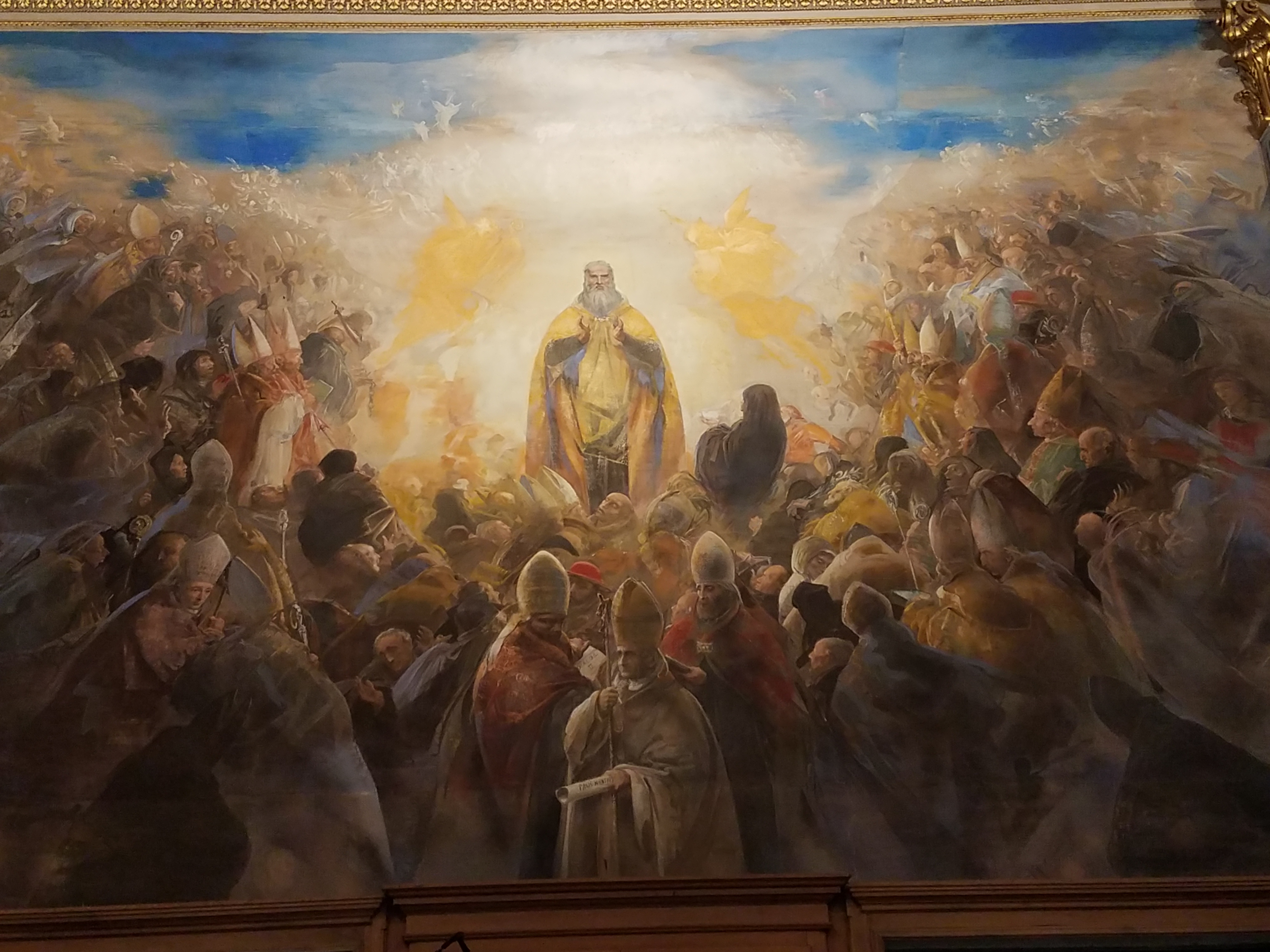


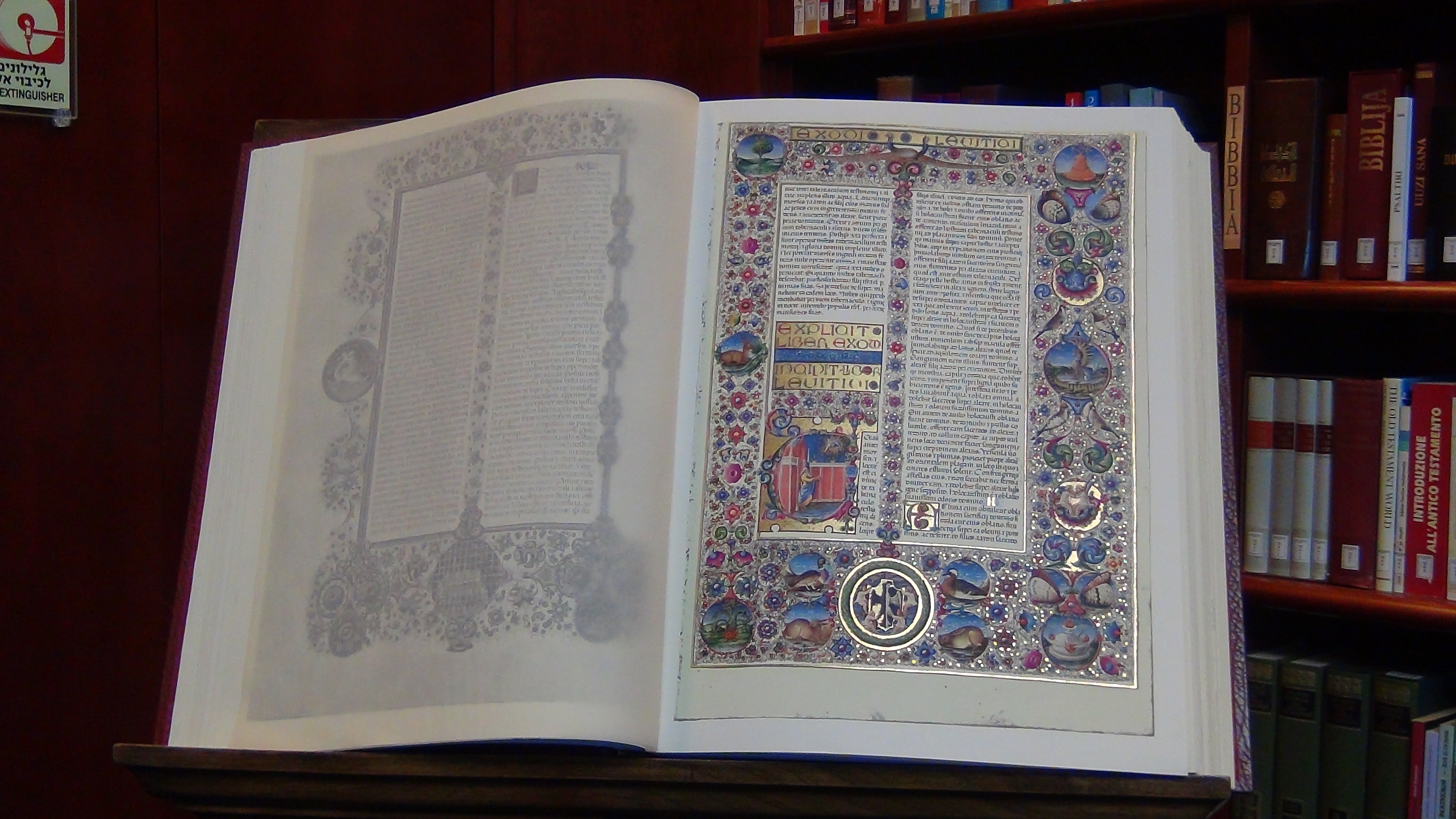

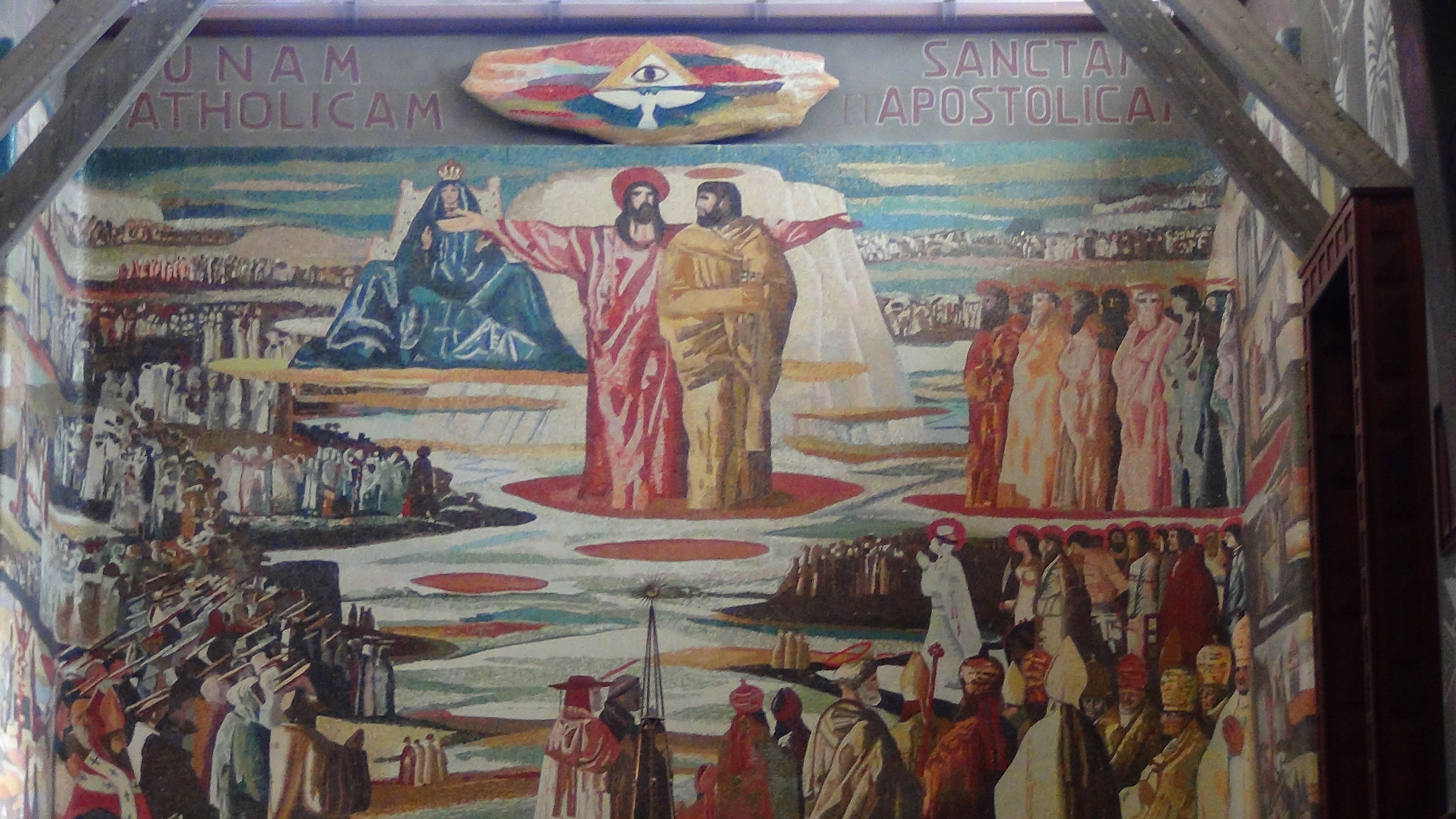

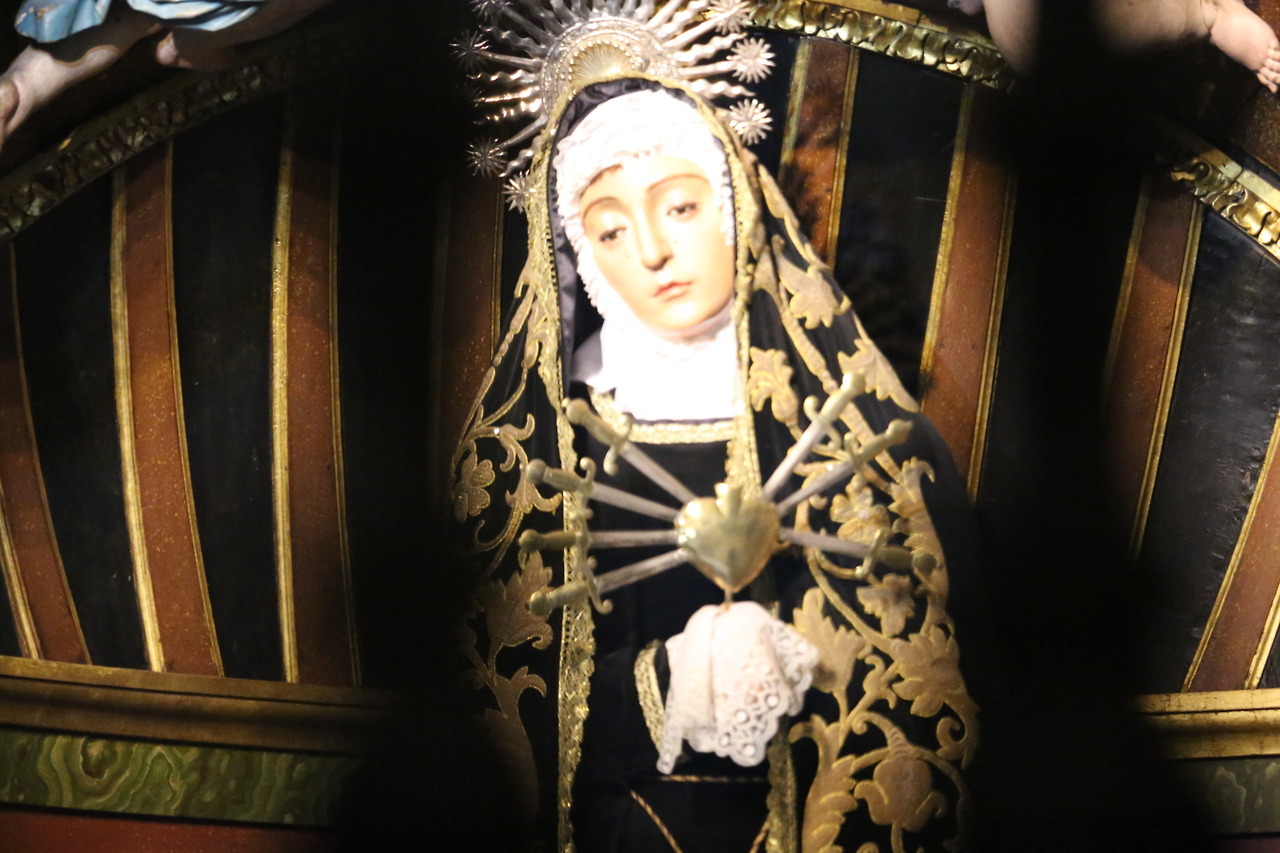
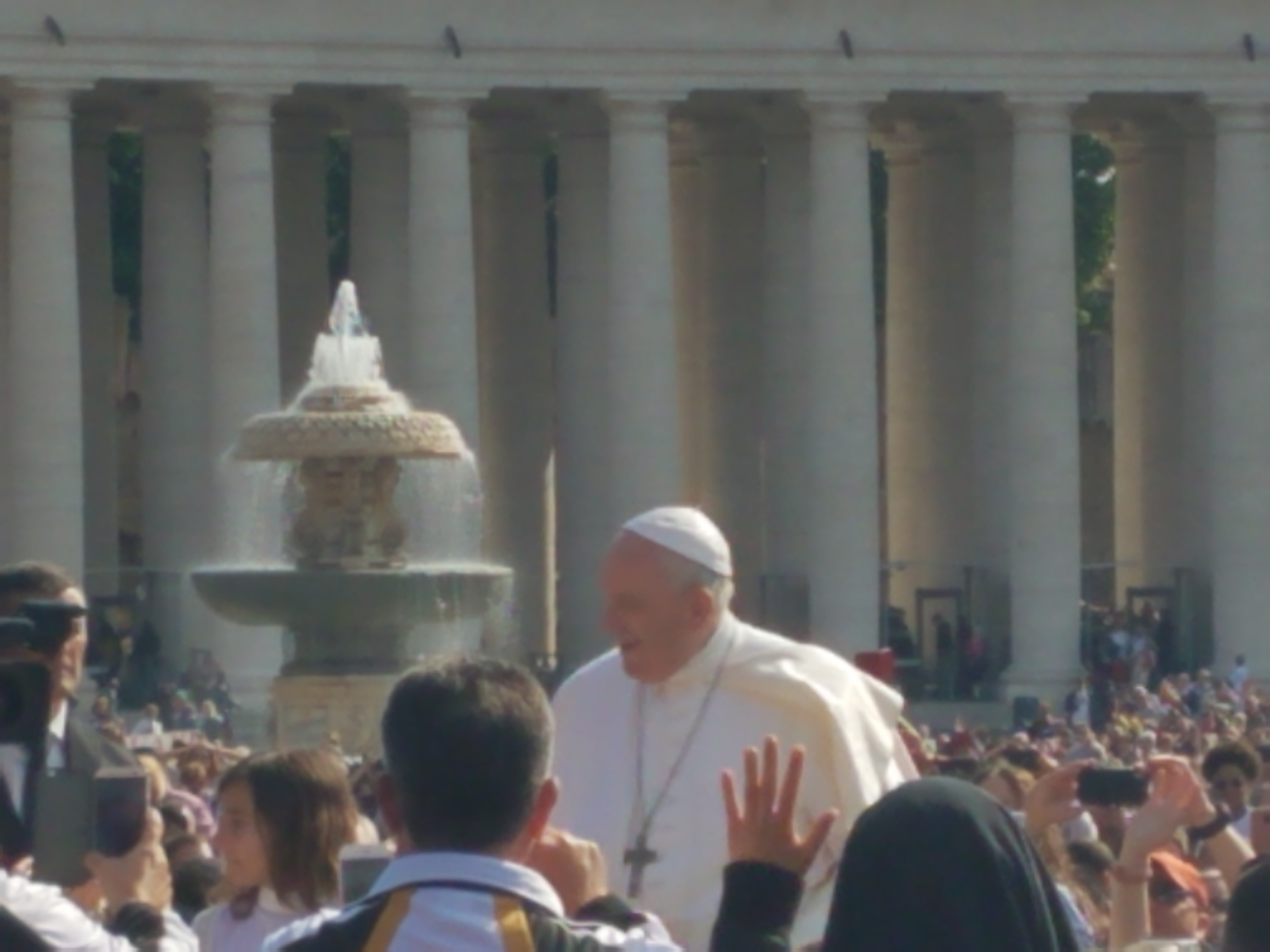
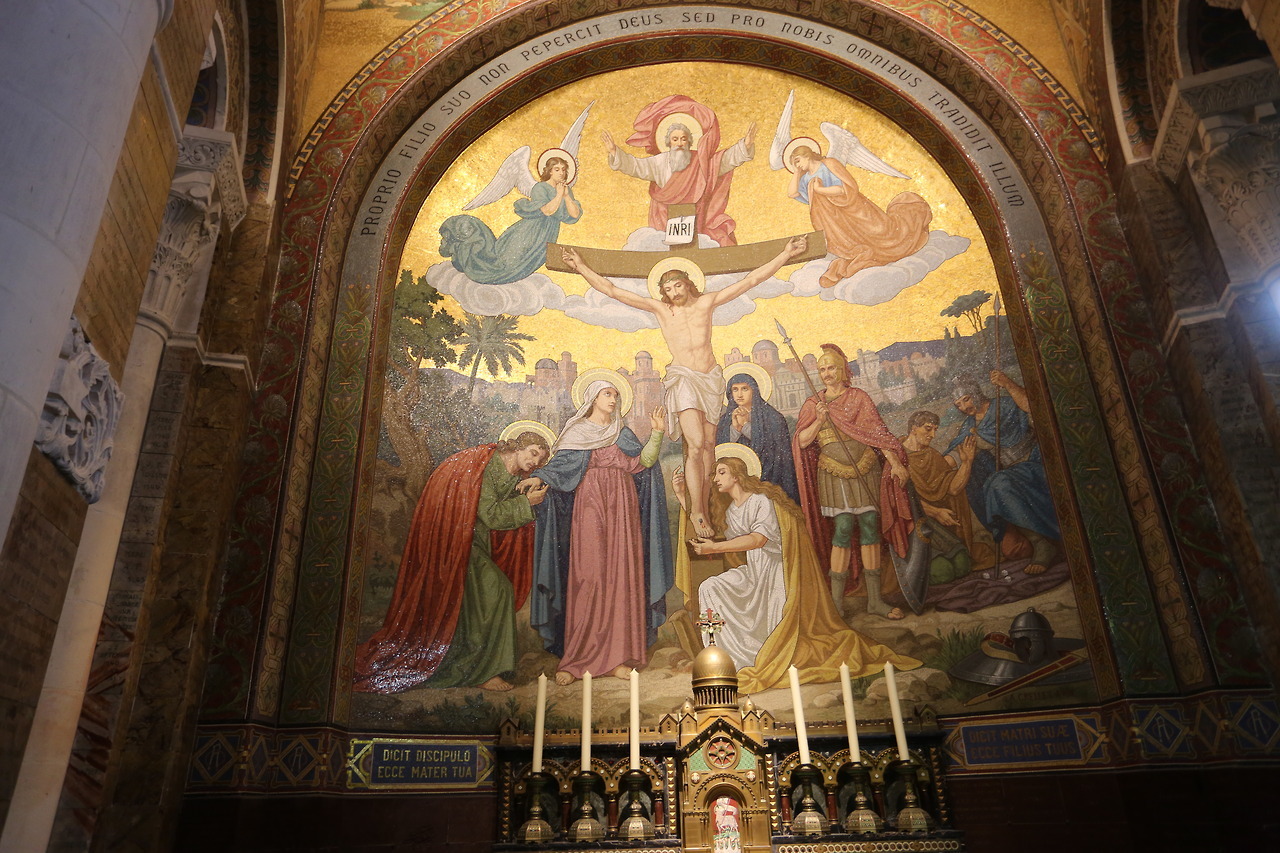
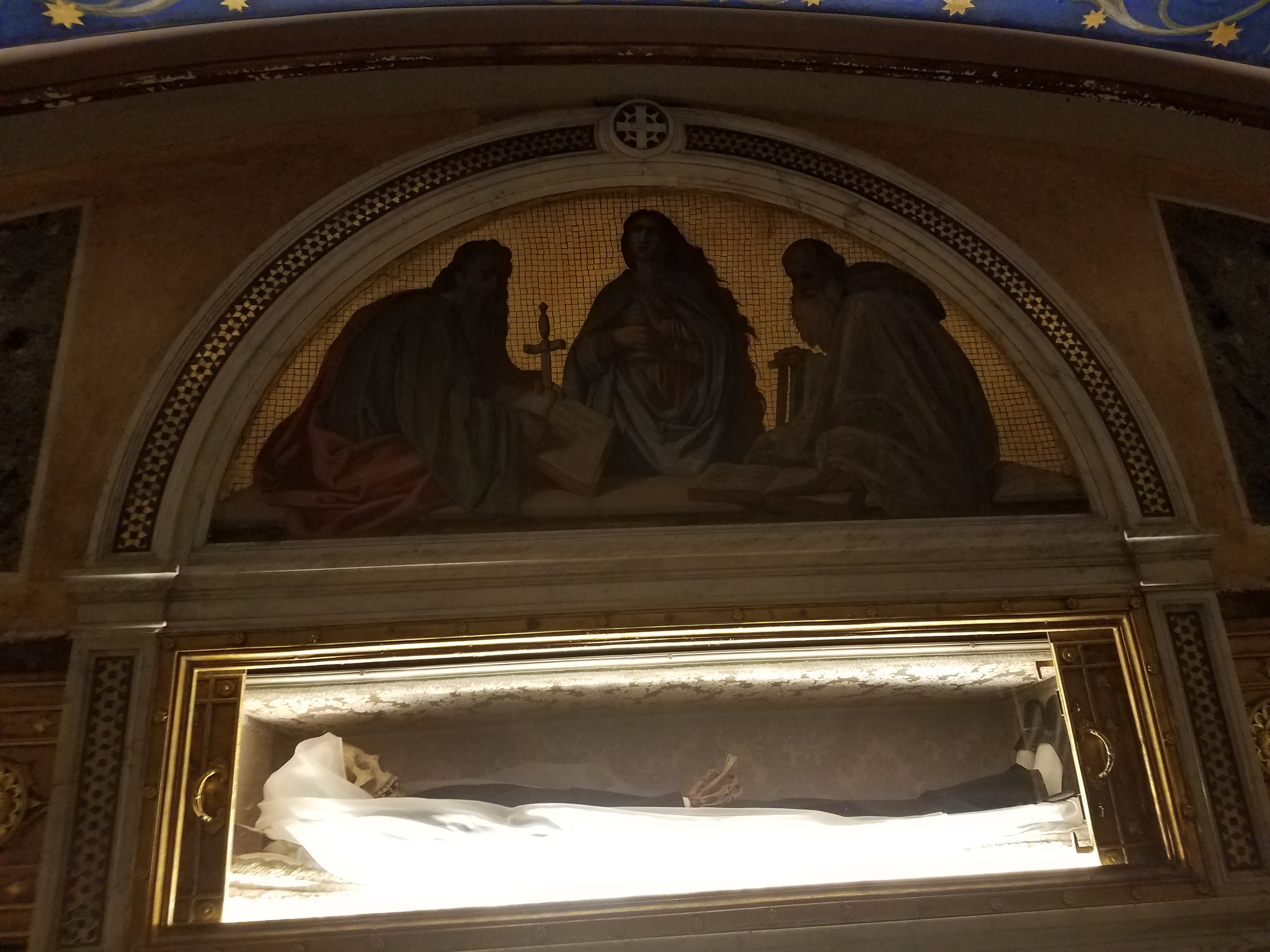
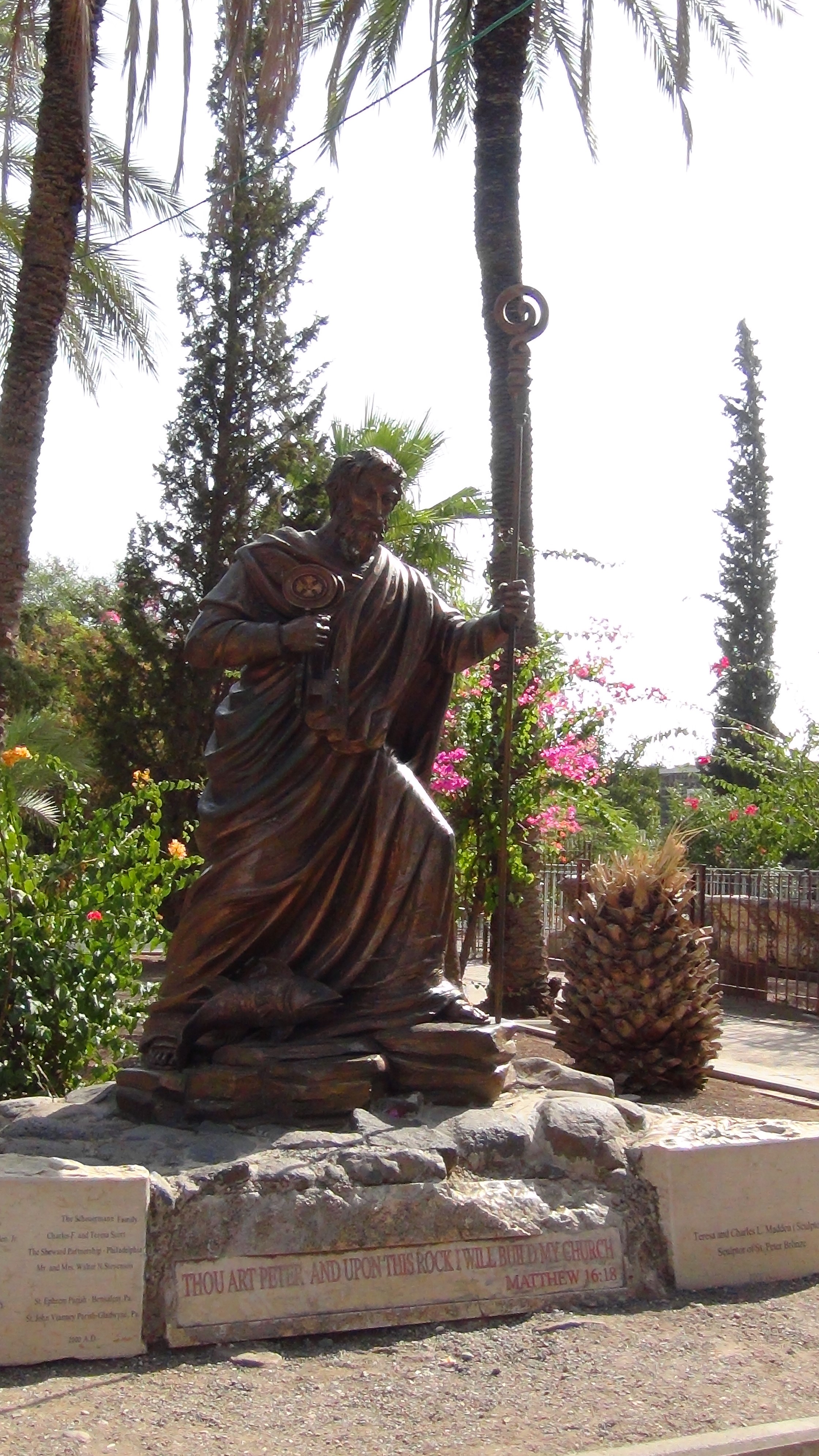
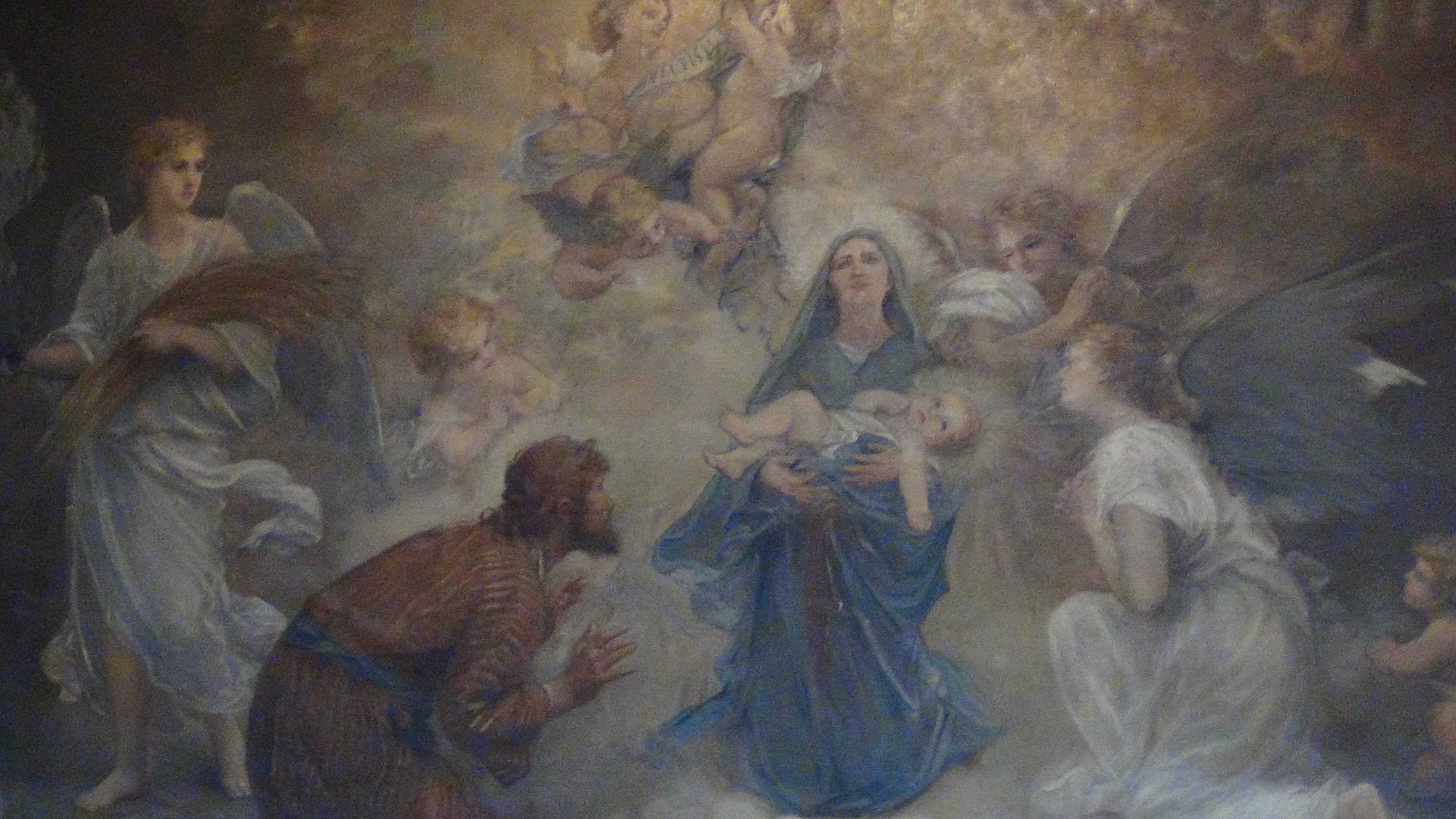
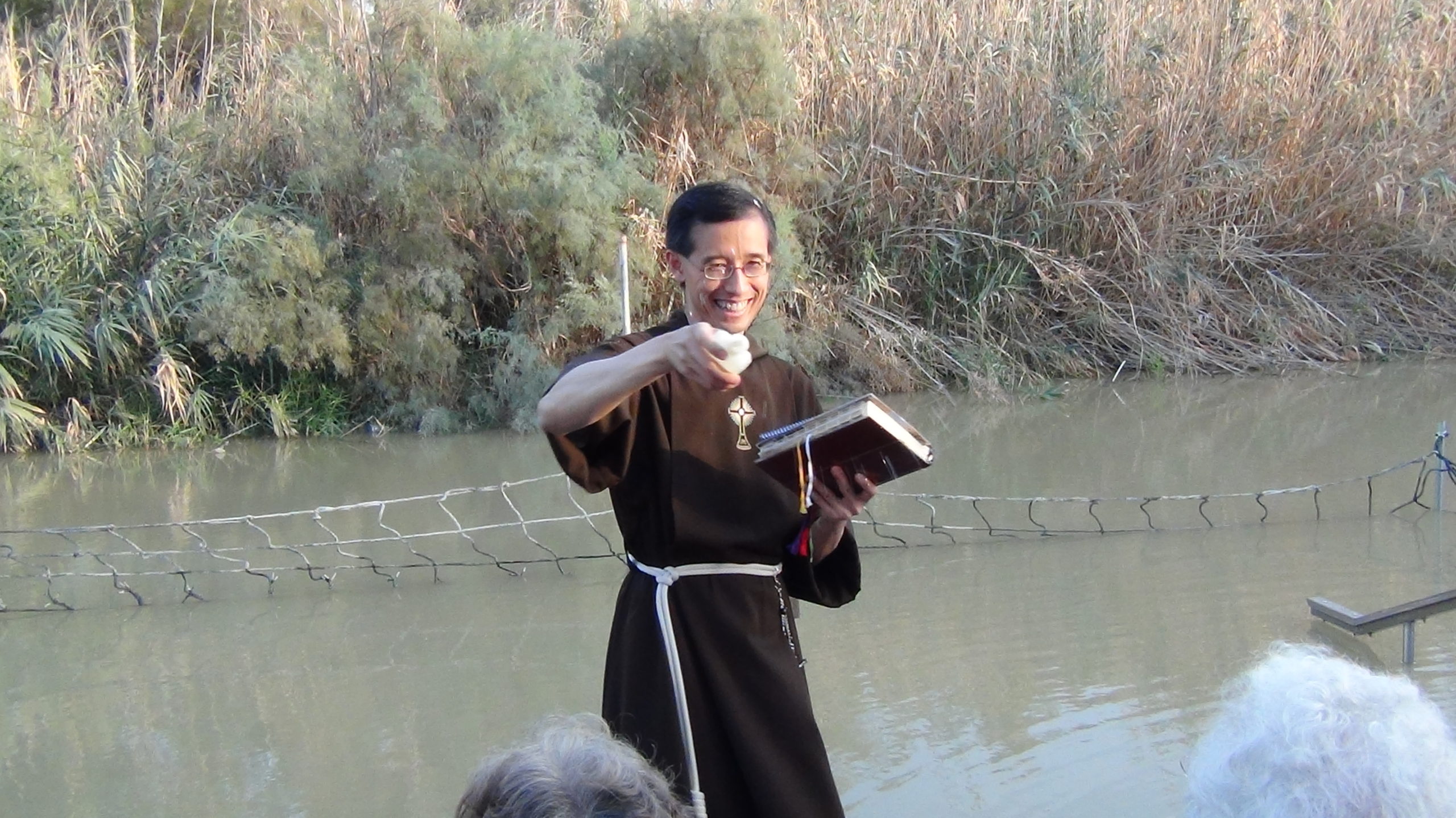
Recent Comments